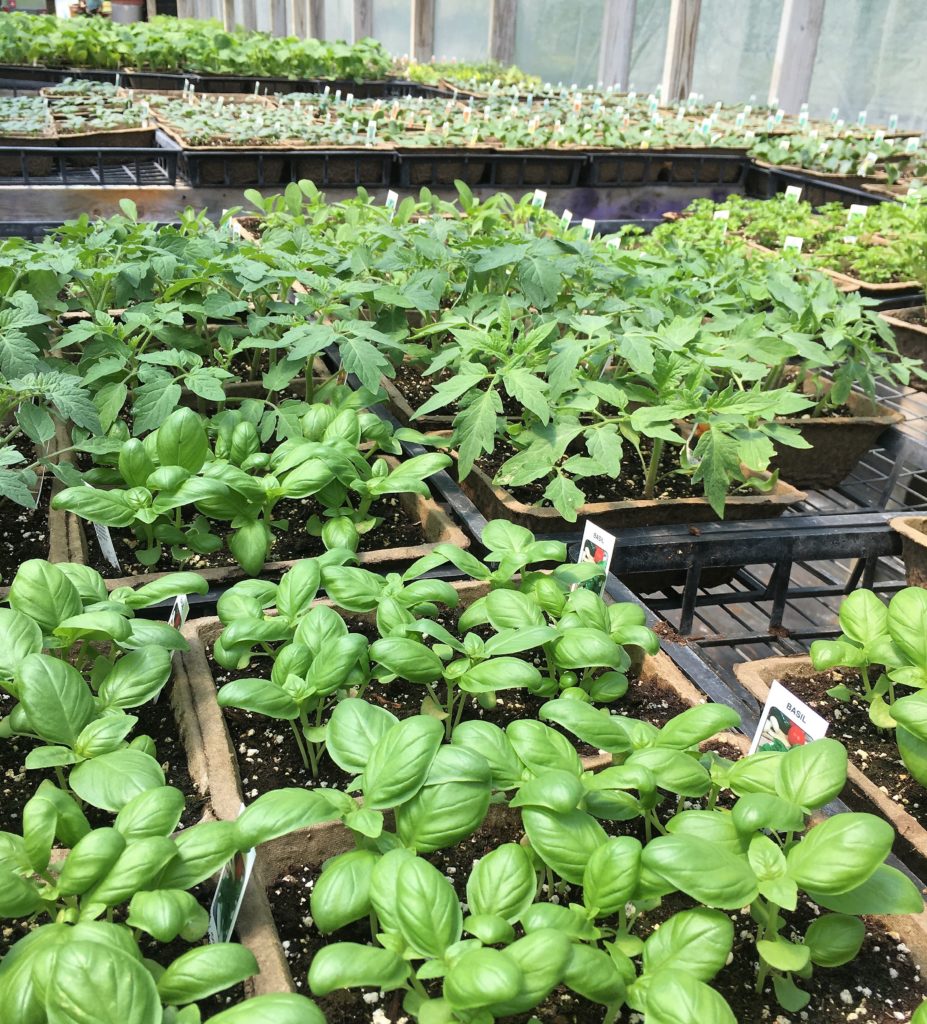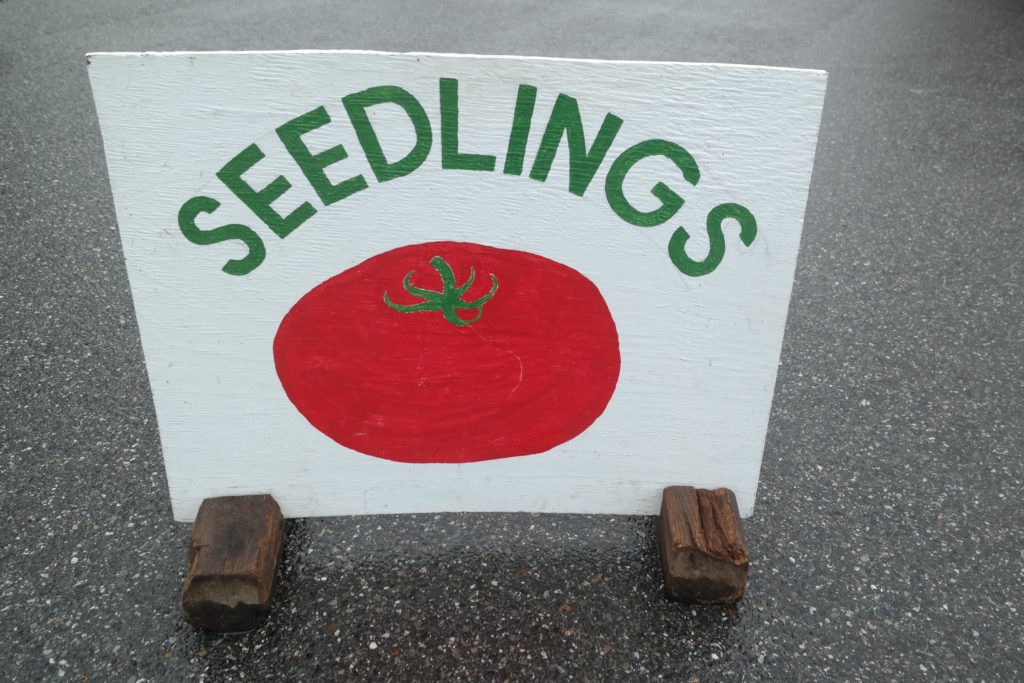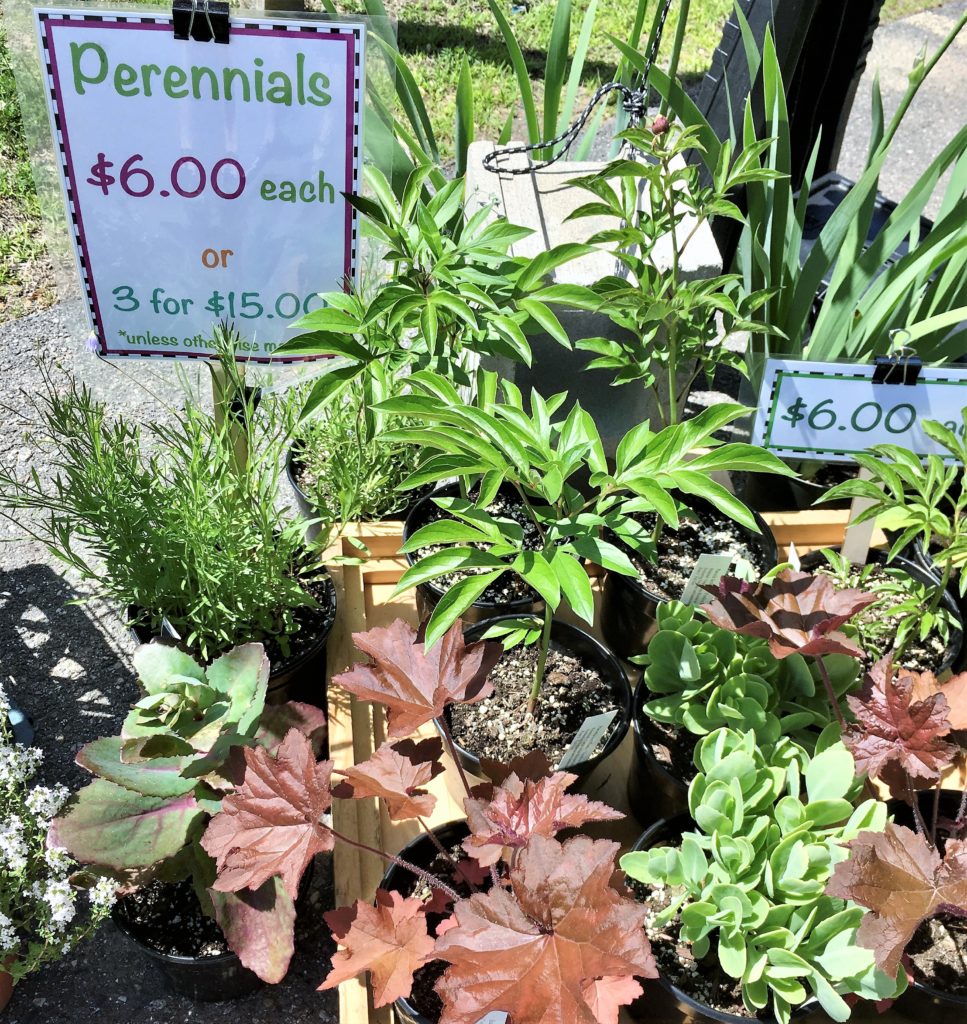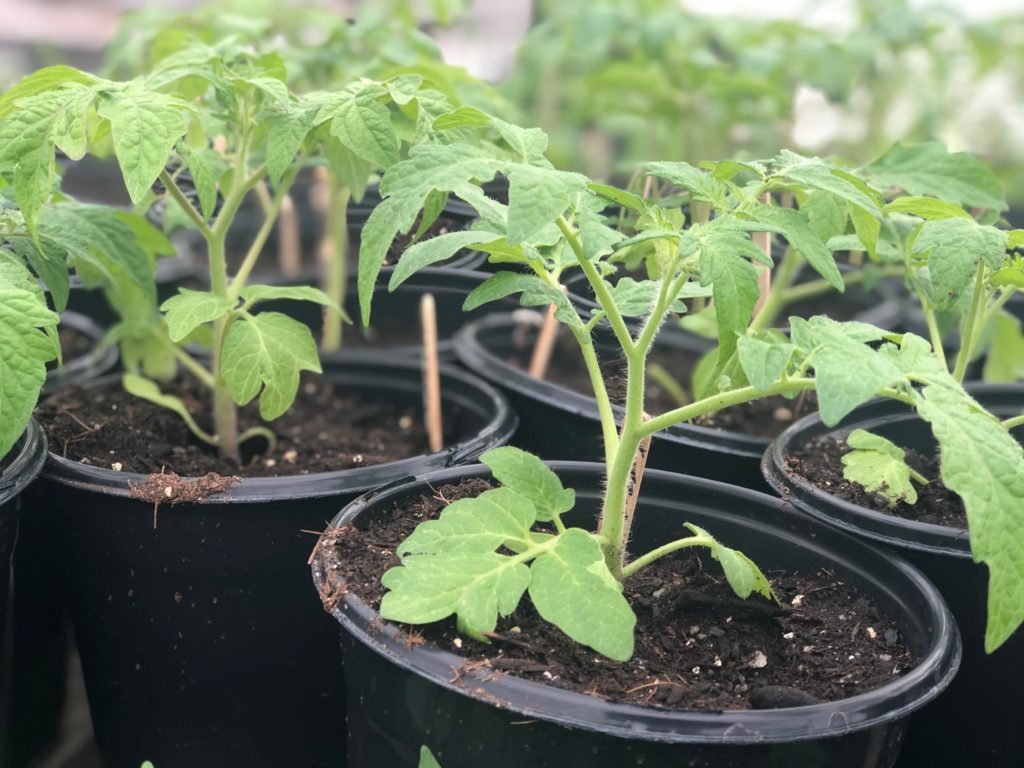Shoppers often ask where to find garden seedlings in Maine. Fortunately, farmers, nurseries, and greenhouses have an ample supply of healthy, hardened seedlings ready to go. When deciding whether to start your garden from seeds or by purchasing seedlings, there are many things to keep in mind. For example, seed packets are affordable. Also, depending upon where you purchase the seeds, there is likely to be a wide variety of each type available. Seedlings are more expensive per plant, but offer advantages, including:
- You can purchase the plants when the conditions in your area are right. Many types of plants must be started indoors well in advance in order to give them enough time to grow in Maine. Getting the timing right can be difficult for beginners! If you purchase seedlings, you can leave the timing to professionals.
- People who have small to medium sized gardens often appreciate the ability to purchase a mixture of seedling varieties. Whereas a seed packet might contain dozens of seeds, you can purchase seedlings in packs ranging from 1 to 6 or more. If you only have room for 1 row of tomatoes, why not plant several varieties to experiment?
- Professional growers have the right environment and tools to produce healthy, acclimated seedlings. They have the right soil, pots, temperature, and light conditions. Starting with healthy seedlings means starting your garden off right!
- Seedlings can be mixed and matched with plants sown directly in the ground from seed. Consider purchasing slow-growing plants (such as tomatoes and peppers) as seedlings, but sow quick growers (like peas and lettuce) from seed.
There are many places to find healthy seedlings to start your summer garden. Here are some suggestions:

YOUR LOCAL GREENHOUSE, NURSERY, OR GARDEN CENTER
If you are lucky enough to have a commercial greenhouse nearby, that’s a great place to start your search for seedlings. You’re likely to find separate areas dedicated to vegetable seedlings, and there will likely be many varieties to choose from for each type of plant. Many greenhouses have experienced staff who can offer advice. (Bonus: at a nursery or greenhouse, you’ll also be able to pick up hanging baskets, planters, and more decorative items for the garden!)

FARMERS’ MARKETS
Farmers’ markets typically have vendors offering seedlings from early spring through June. At a farmers’ market you may find several farms offering seedlings, and may therefore have a particularly good selection of varieties and sizes. Farmers’ market vendors know which fruits, vegetables, and herbs taste best, and tend to sell those as seedlings.
FARMS
Many farms are set up to start large quantities of seeds for their own production, and sell seedlings as well. Typically you might find these at a farm stand or store. This season, some farms are also offering pre-order options for pickup or even delivery. Check the website and social media pages of farms in your area. Expect to find more unusual varieties than you might find at your local garden center.
PLANT SALES
Local garden clubs, Soil and Water Conservation Districts, and other organizations often hold annual plant sales. These can be excellent places to purchase seedlings, as well as to buy perennial plants that are divisions from garden club members’ gardens. (Check local listings for events near you.)


SNAP SHOPPERS CAN PURCHASE SEEDLINGS
Shoppers who use SNAP benefits may purchase fruit and vegetable seedlings using SNAP at participating farm stands and farmers’ markets. Some sites even provide additional incentives through the Maine Harvest Bucks program.
ONE FINAL TIP: DON’T RUSH!
With warm, sunny days in May, it can be tempting to get the garden planted early. But remember, only some plants (such as kale, spinach, and peas) thrive in cool temps. Many popular garden plants are damaged by cold or even cool whether. In 2020 there was a “hard frost” in early June, meaning it got cold enough overnight to freeze plants and fruit tree blossoms. Farmers, orchardists, and gardeners experienced extensive damage. Even if it isn’t cold enough to freeze a plant, it can still be cold enough to damage them. Tropical plants like peppers, tomatoes, and cucumbers don’t like to get cold at night, and they don’t like to be planted in cold ground. When in doubt, wait before planting your warm-weather seedlings. Ask your local grower for advice about when to plant in your area!
